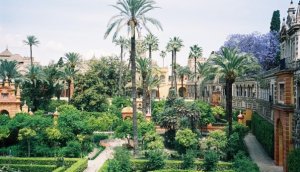Most languages and dialects have slang, and much is playful, but Indonesians seem to take language play to a higher level. The linguistic heritage of the archipelago gives the perfect ingredients for wordplay.
The official language Indonesian (Bahasa Indonesia) is derived from ‘market Malay‘ (bahasa pasar, the language of the bazaar), which served as lingua franca throughout the region. Although the official, standardised languages of Malaysia and Indonesia are both Malay languages with mutual intelligibility of around 80%, Malaysia‘s places far more weight on court Malay (bahasa istana, particularly the Classical Malay of the Malaccan Sultanate), while Indonesia’s emphasizes the language of the market. This can be illustrated with the faux amis budak, which means ‘child’ in Malaysia, ‘slave’ in Indonesia, and percuma which means ‘free of charge’ in Malaysia, ‘worthless’ in Indonesia. The colonial influence of English and Dutch in Malaysia and Indonesia respectively is illustrated by the word pair polis and polisi: in Malaysia they mean ‘police’ and ‘policy’, but in Indonesia they mean ‘policy’ and ‘police’ (from Dutch polis and politie).
Only around 10% of the around 240 million inhabitants of Indonesia speak the official language as their mother tongue. Most of these first-language speakers are city dwellers who have relegated their regional language in the melting pot of the city. The Malays of Sumatra, Riau and Moluccas (Maluku) speak a regional language that is close enough to the standard language for them to be considered first-language speakers too. The 90% of Indonesia’s population speak over 700 closely related regional languages, the top three are Javanese (basa Jawa), Sundanese (basa Sunda) and Madurese (basa Madhura). The influence of English in the creation of neologisms, especially in technology, is strong in both Malaysia and Indonesia. Only the older generations in Indonesia can remember much Dutch; younger generations are taught English.
Continue reading “Indonesian, Malay, slang and Arabic names”






